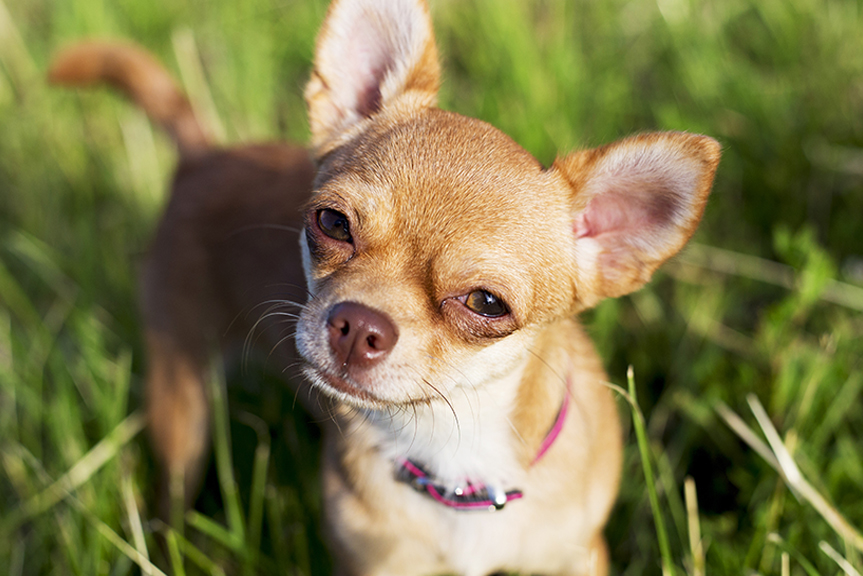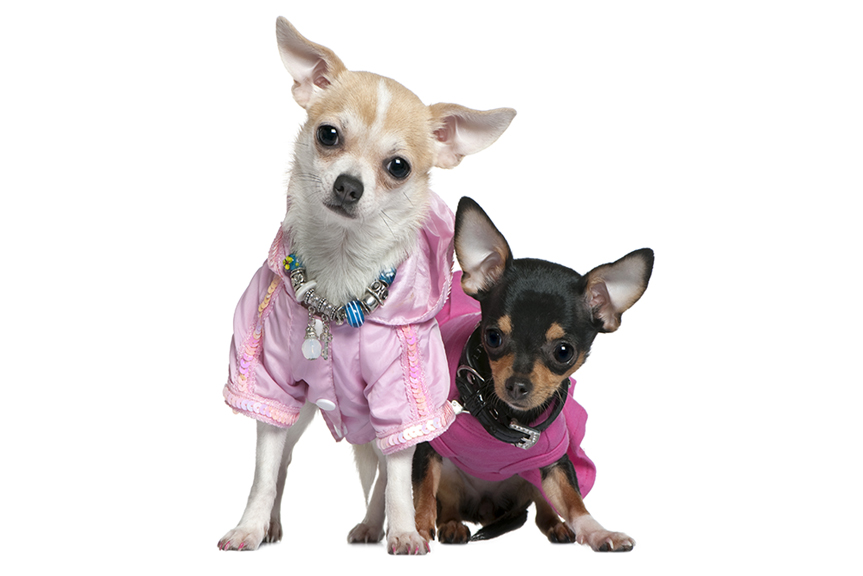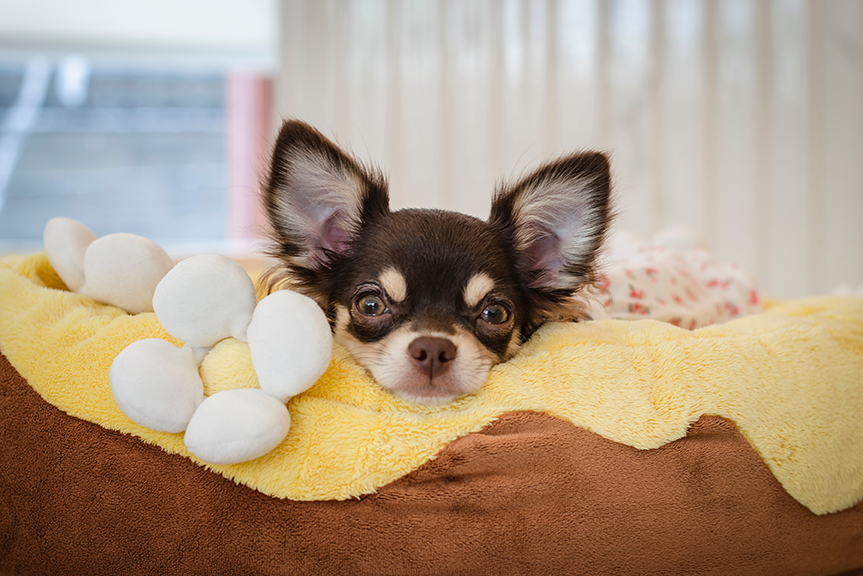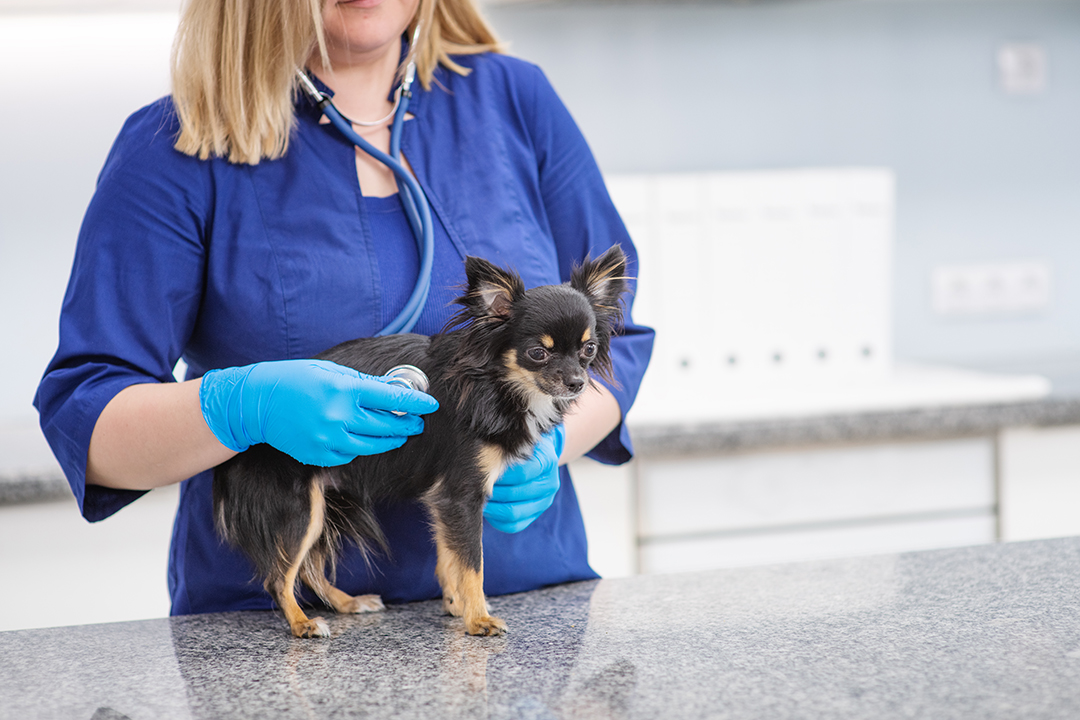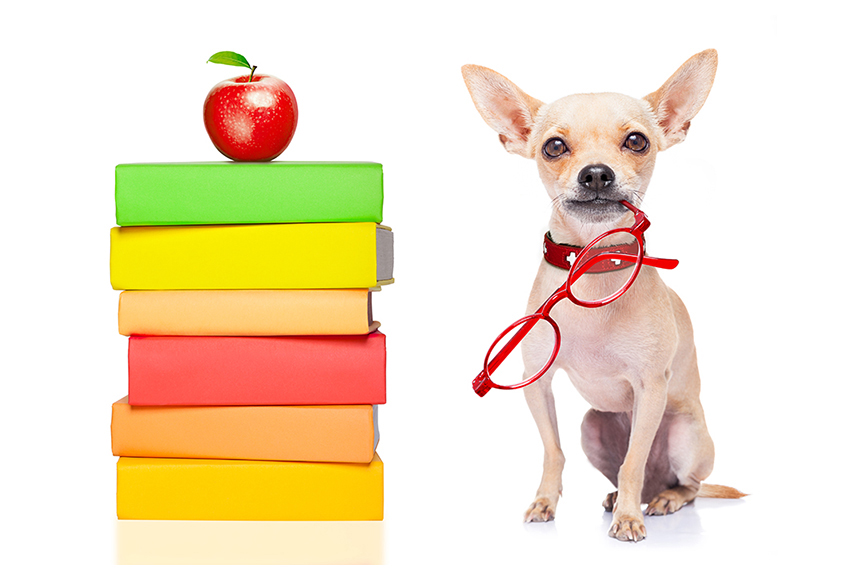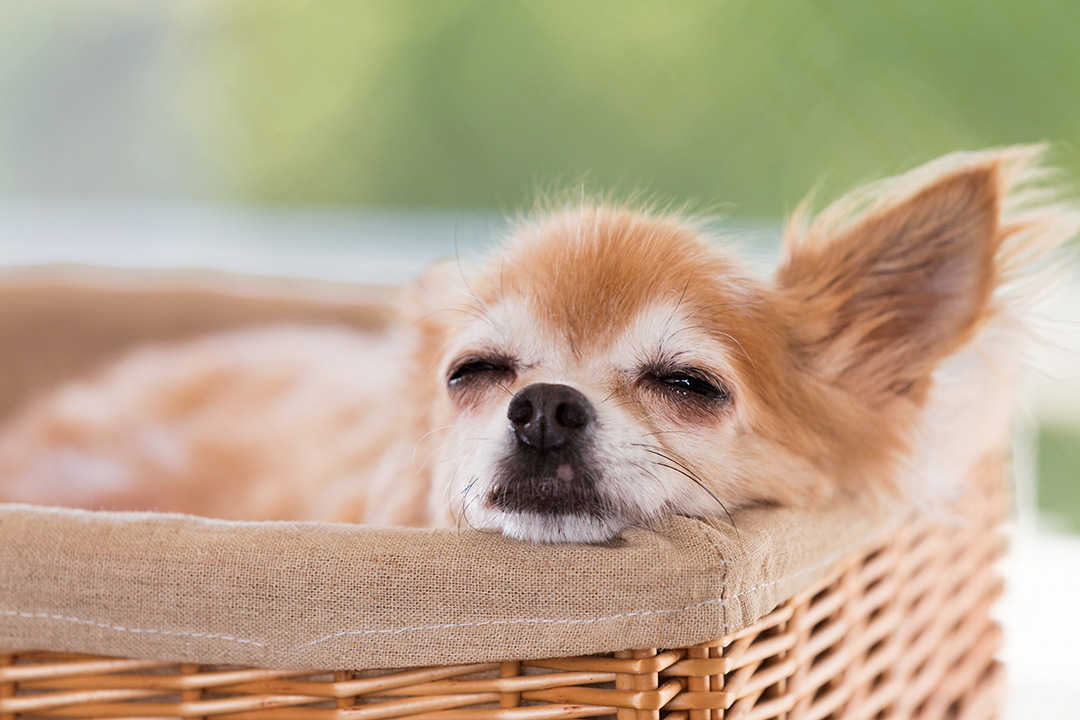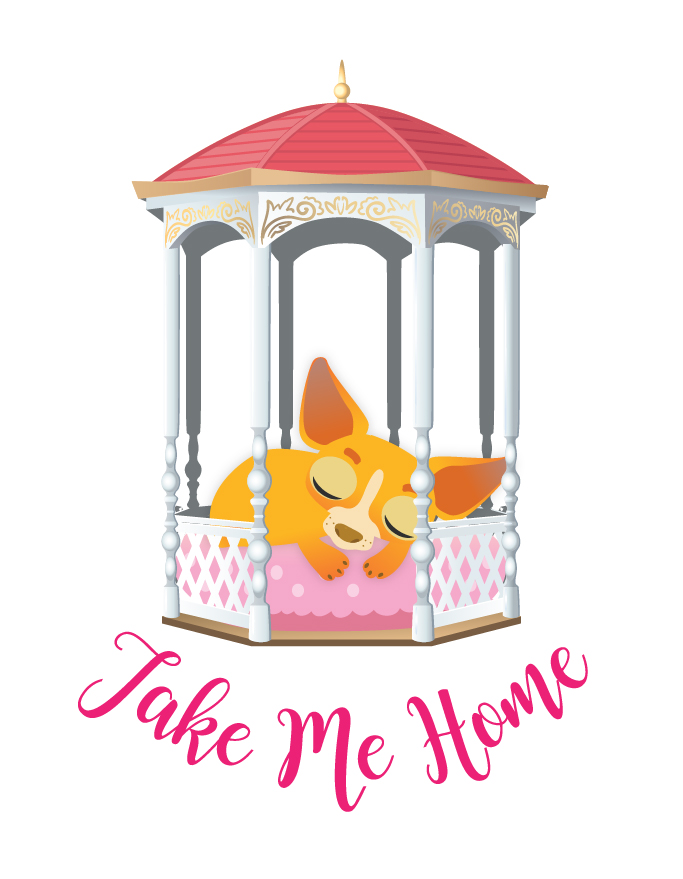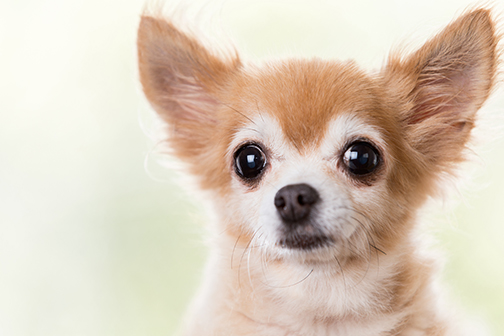Chihuahua Senior Care
Providing Extra Care for Your Senior Chihuahua
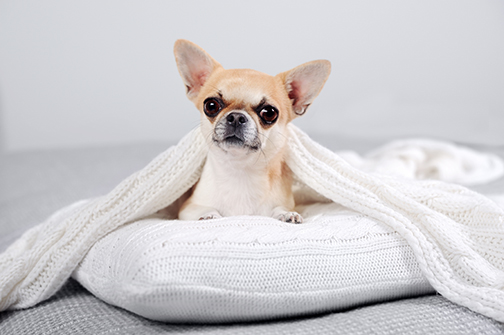
While Chihuahuas are known for their long-life span compared to other breeds, as Chihuahua lovers we still think they will live forever, which sadly is not the case. By ten or eleven years old most Chihuahuas are showing definite signs of age and continue to age slowly. Their age life span varies by environment and genetics, but on average 13-16 years old with some living in their late teens and on rare occasions into their twenties. Your young at heart Chi, will be at some point need your extra tender loving care during their senior years and you will need to know how to help her cope.
One of the best things you can do for your senior Chi is to invest in a couple of orthopedic beds. This is a necessity. A heating pad and moderate exercise will help their stiff joints as well. Boarding can be especially stressful for your senior Chi, so try not to do if possible. If you need to go away, consider asking a friend to house sit that knows your Chihuahua. Make sure they are fully aware of your dog’s needs, health problems and extra precautions that need to be taken. It’s especially important to have plenty of sweaters available for your pup in case they get chilly. Be extra careful when your Chi wants to get up on the sofa or bed. Your previous pet ramp or stairs be harder for them if they have vision loss, mild stiffness or arthritis. Watch out for any crankiness or impatient behavior, as this could be a sign of pain and not just old age.
Senior Health
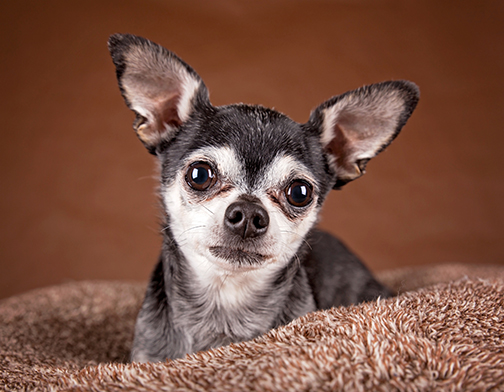 |
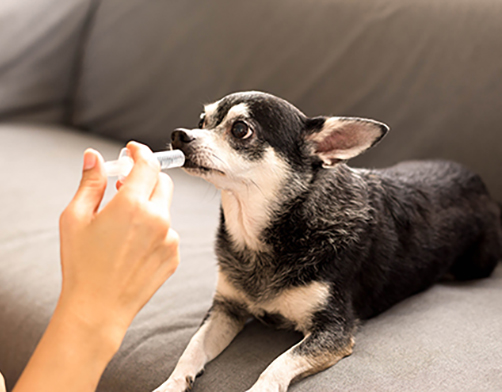 |
Your senior Chihuahua should have a checkup twice per year to identify treatable diseases and maintain good health. Since anesthesia poses a great risk to older dogs, a complete medical checkup will decrease the risk if it is required. Your Chi’s immune system won’t be as effective in their senior, so protecting your pup from the chills, overheating and any other stressful condition is more important than ever during this time. If your Chi is not around other dogs, your vet may suggest lessening their vaccination schedule.
Vomiting and diarrhea can be a sign of many different problems. Keep in mind, that an older chihuahua cannot handle the dehydration that comes with continued vomiting or diarrhea and should be seen by a vet right away.
Regularly brushing your Chihuahua can help alleviate dry and itchy skin by stimulating oil production. Older dogs have a stronger body odor, but don’t ignore them, as some odors can indicate specific problems like periodontal disease, impacted anal sacs, seborrhea (skin disorder), ear infections, or even kidney disease. Any ailment your senior Chi has is magnified compared to the same problems they had as a younger dog.
Periodontal disease is quite common in Chihuahuas and is usually caused by years of dental neglect. Your Chihuahua may lick their lips constantly, avoid chewing or there may be swelling around the mouth. A thorough teeth cleaning is necessary to relieve your pup’s discomfort and possibly more.
Your senior Chi may experience hearing or visual loss. A slight haziness that appears in the pupil’s in normal and has minimal effect on their vision. Some dogs, especially those with diabetes may develop cataracts, which appear as an almost white through their pupils. If your Chi has gradual vision loss, they can cope well if they are kept in the same environment and extra safety precautions like blocking off stairs, or pools and leaving the furniture exactly as is. You can also use carpet runners and lay other pathways. Dogs can cope with hearing loss with hand signals or vibrations.
Humans and dogs suffer form many of the same diseases as seniors. Cancer is responsible for more then fifty percent of all deaths is dogs over ten years of age. Signs of cancer are abnormal swellings that don’t not go away or continue to grow, loss of appetite, difficulty eating or swallowing, weight loss, lameness, bleeding or difficulty breathing, urinating or defecating. Many of these symptoms could also be associated with other disorders, so it’s best to inform your vet on what is going on so they can determine the real problem.
Senior Diet
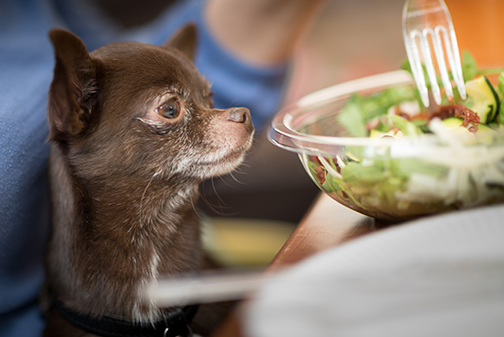
Most older Chihuahuas do not need a special diet, unless they have a health condition. Focus on feeding them quality and not so much quantity. Hopefully this has been the case most of your Chi’s life. Since both their metabolism and physical activity slow down as seniors, they will not need as many calories to maintain their same weight. Is your Chi is overweight, cut down on the treats, as this adds more burden to the heart and joints. Older dogs will naturally lose weight, so make sure they have a little extra cushion to fall back on in case they get sick.
It’s even more important for older Chihuahuas to be fed several smaller meals and on a regular schedule. You can moisten dry food, feed canned food or homemade foods to make it easier for Chi’s with dental issues. It your Chi has arthritis, especially if is in their neck, it will be easier to have their food elevated food and water bowls or they may eat lying down to be more comfortable.

Exercise and keeping your Chihuahua mobile
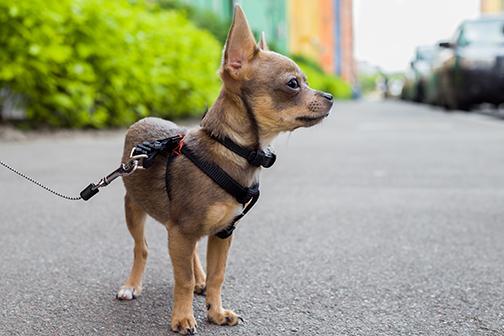
It’s important to keep your Chihuahua mobile in their senior years, but not as to add too much stress on their joints. Your senior Chi will tend to have a more leisurely life including laying in the sun, short car trips, tasty meals, walking around the house, and shorter walks. More snuggling will be important too. If you Chi has signs of arthritis, low impact exercise such as going for a walk every other day is best. Glucosamine and Chondroitin over the counter chews and prescription drugs can help depending on the severity of your Chi’s arthritis.
Chihuahua Dog Care
Quick Links for the main topics you will find on Love Your Chihuahua
